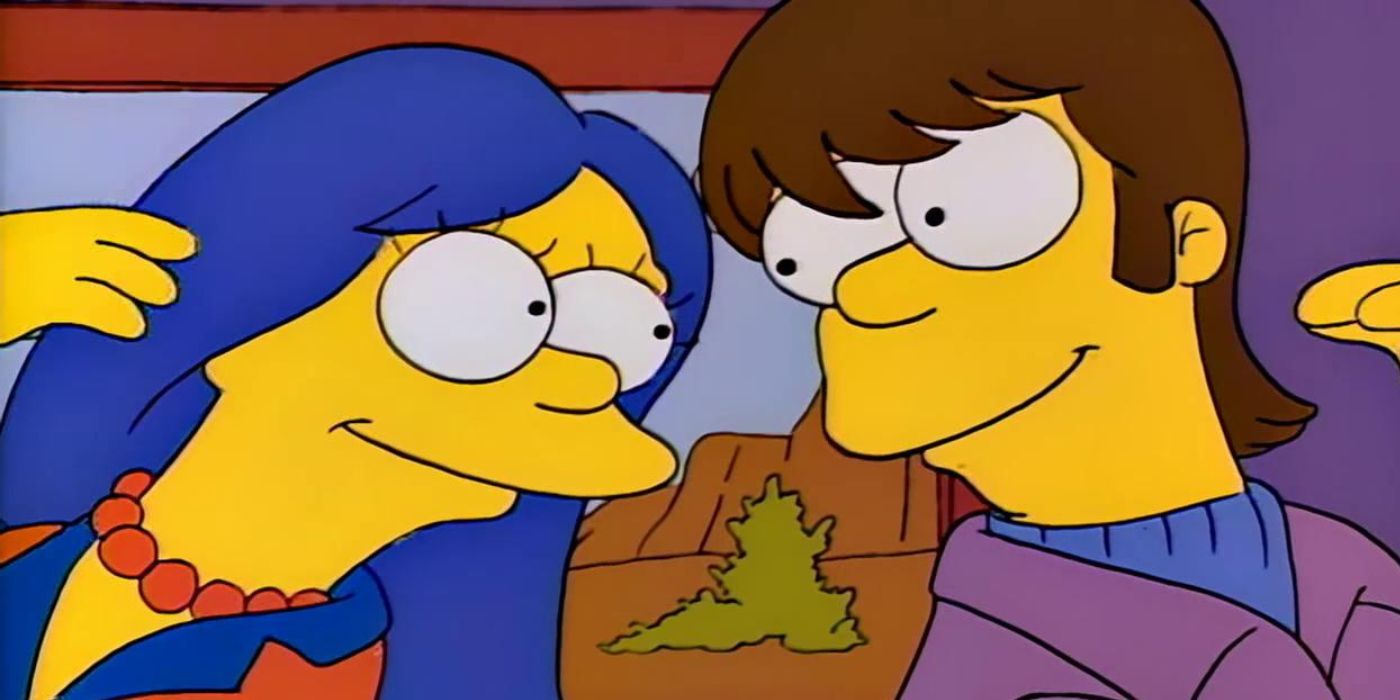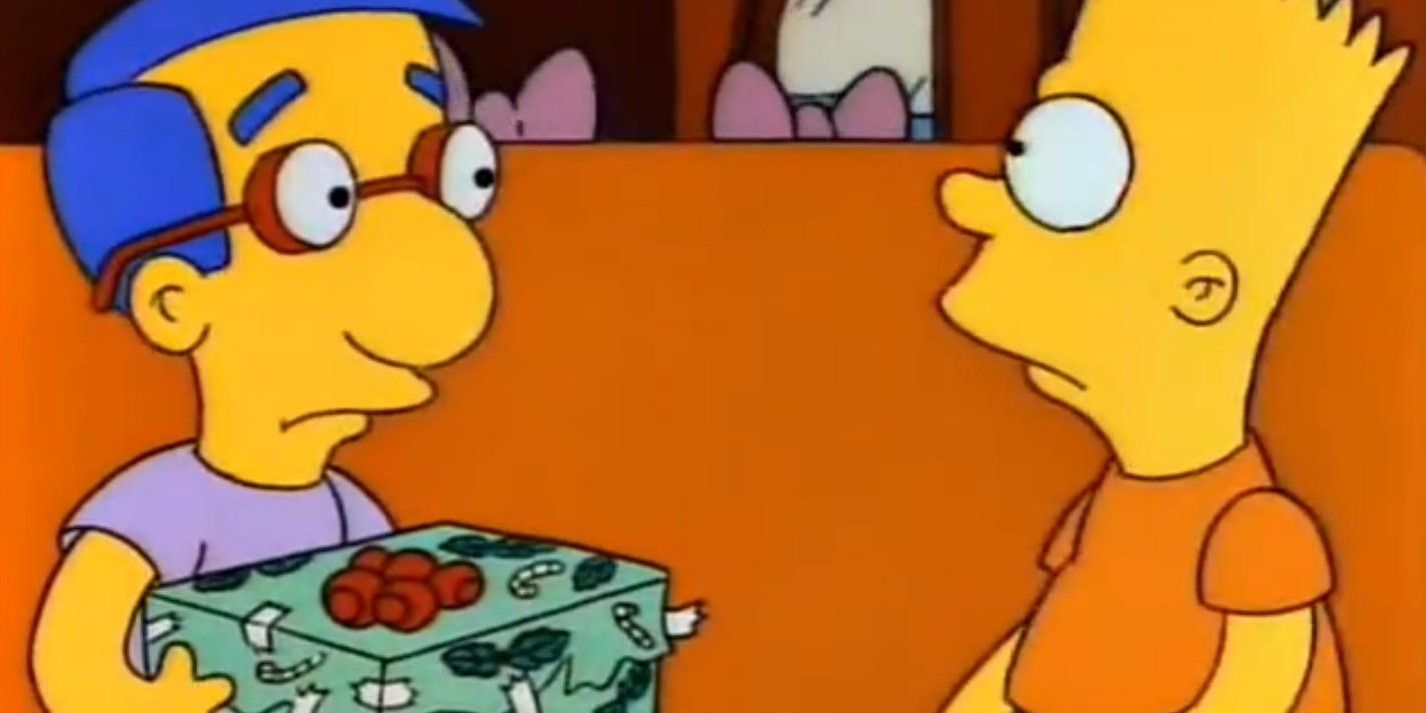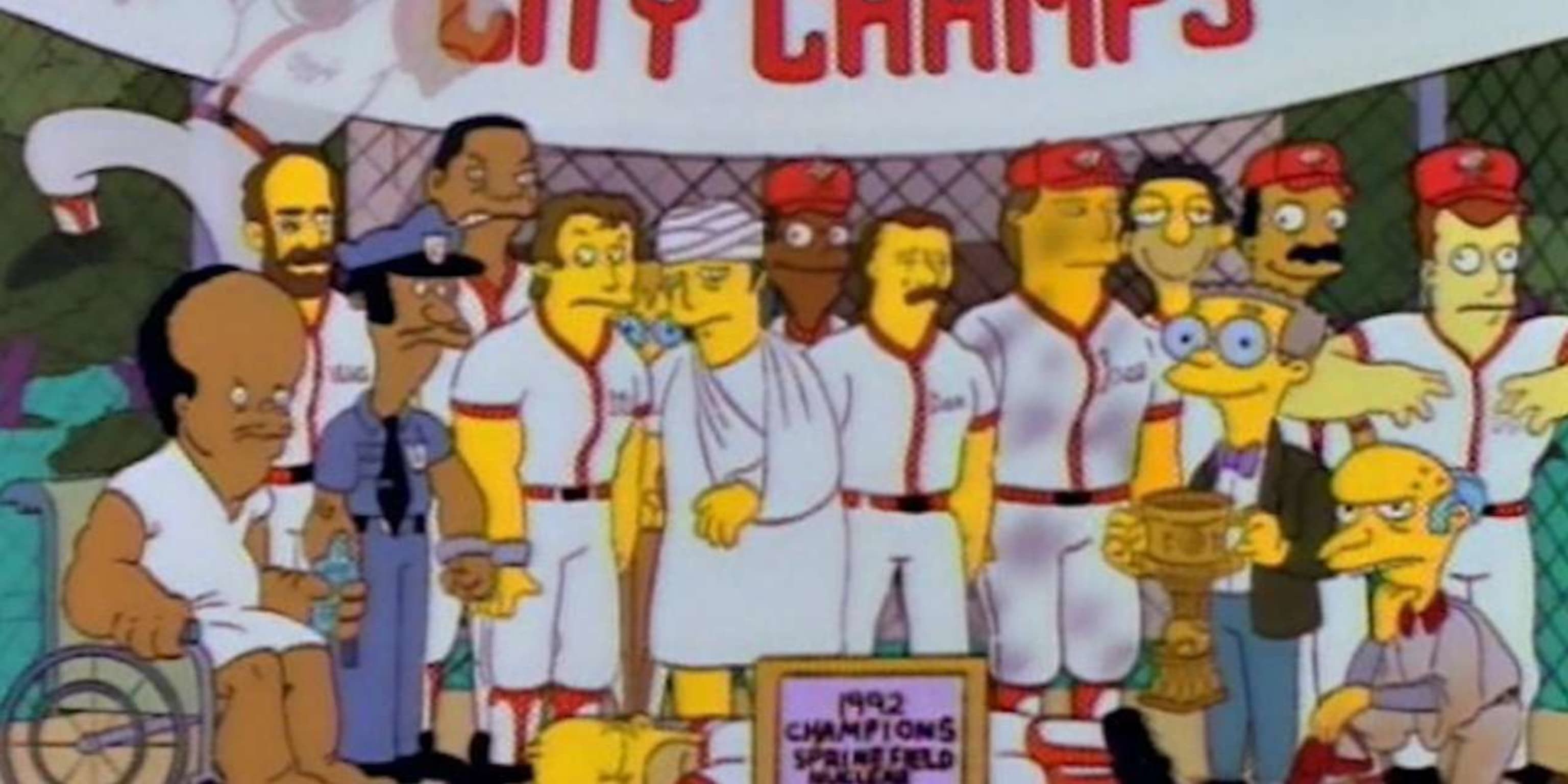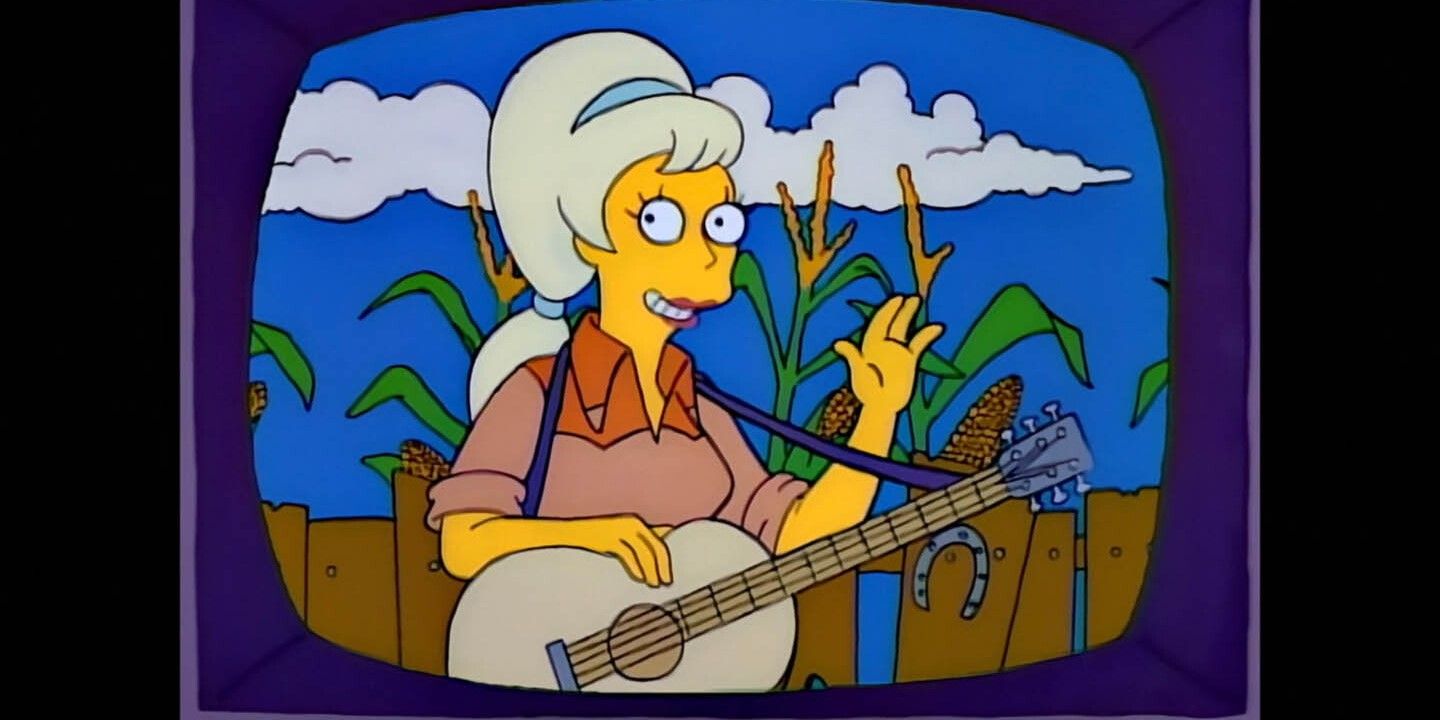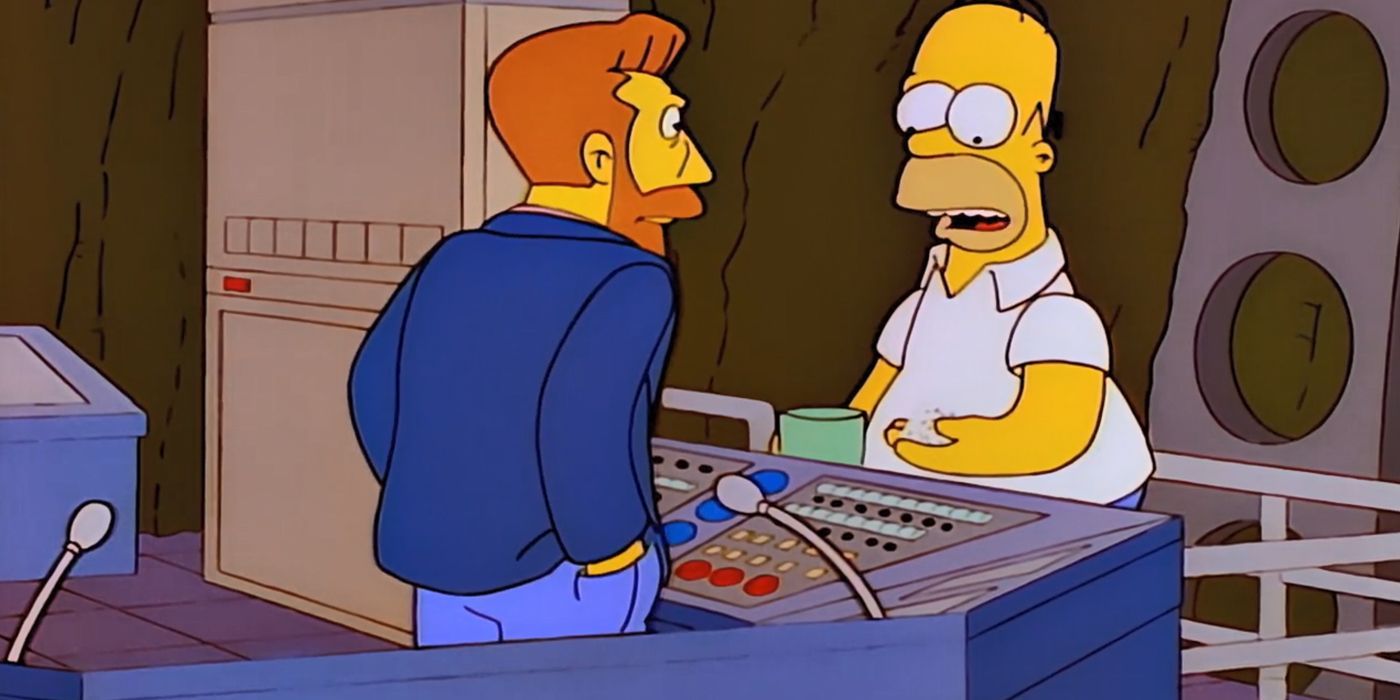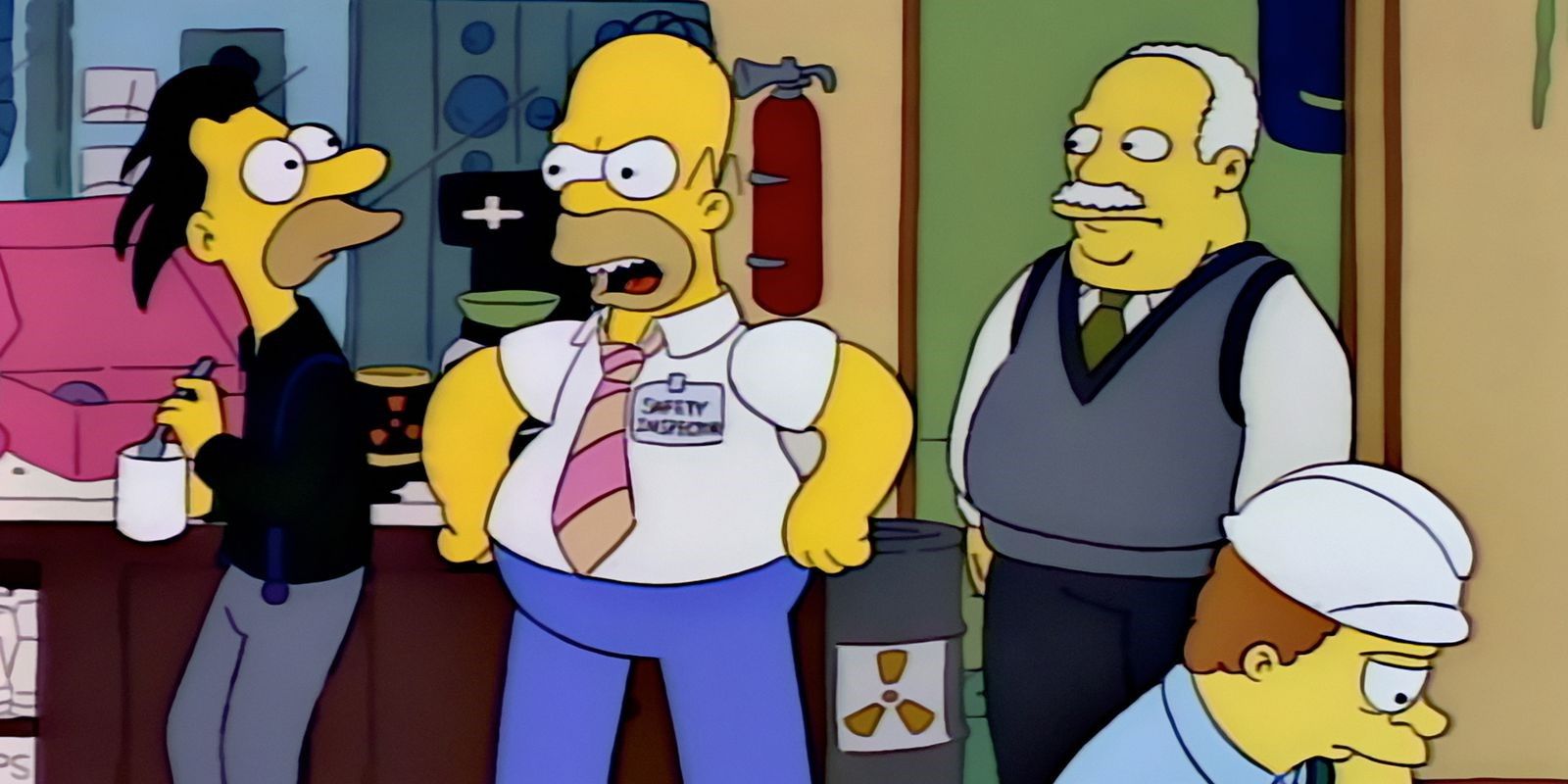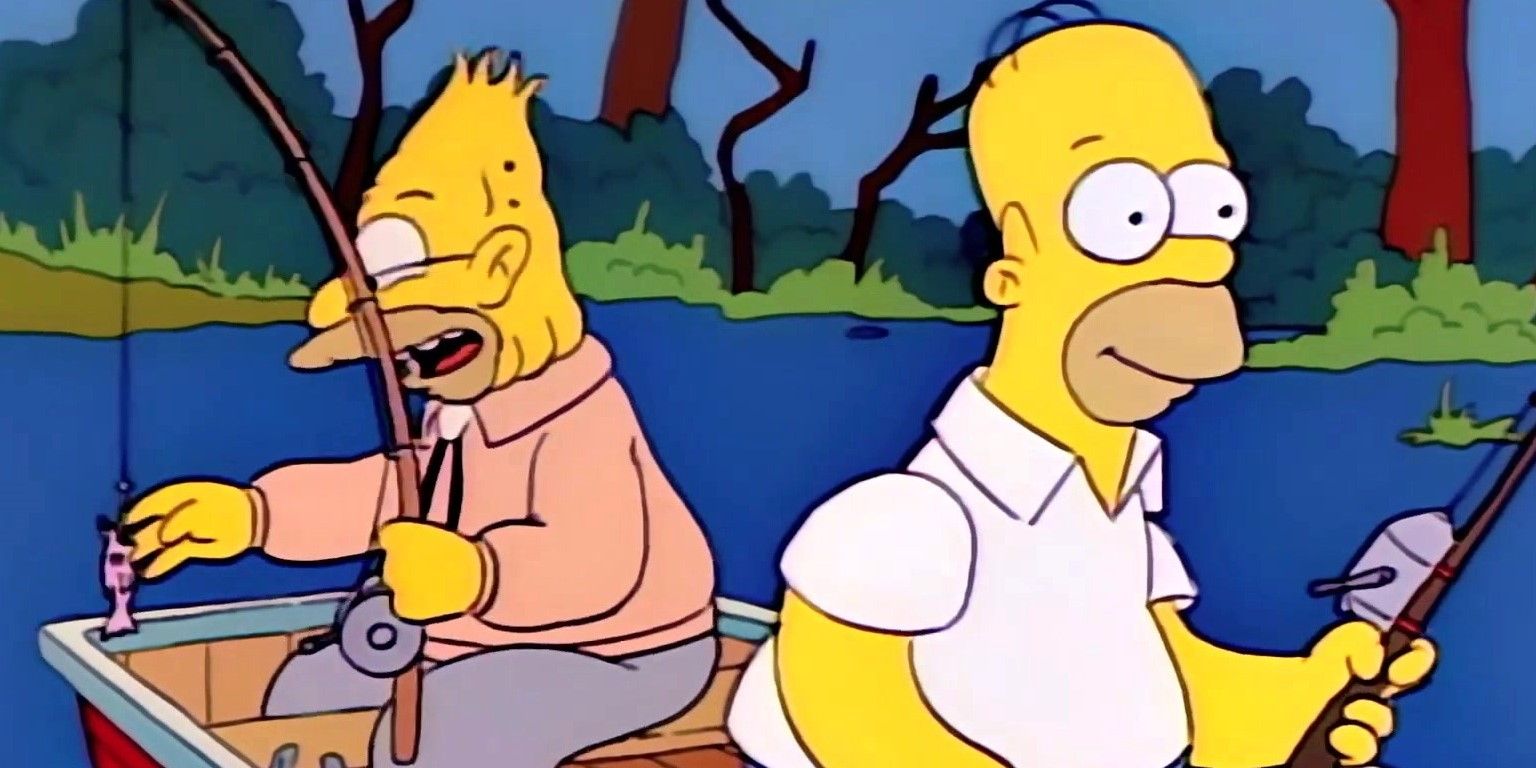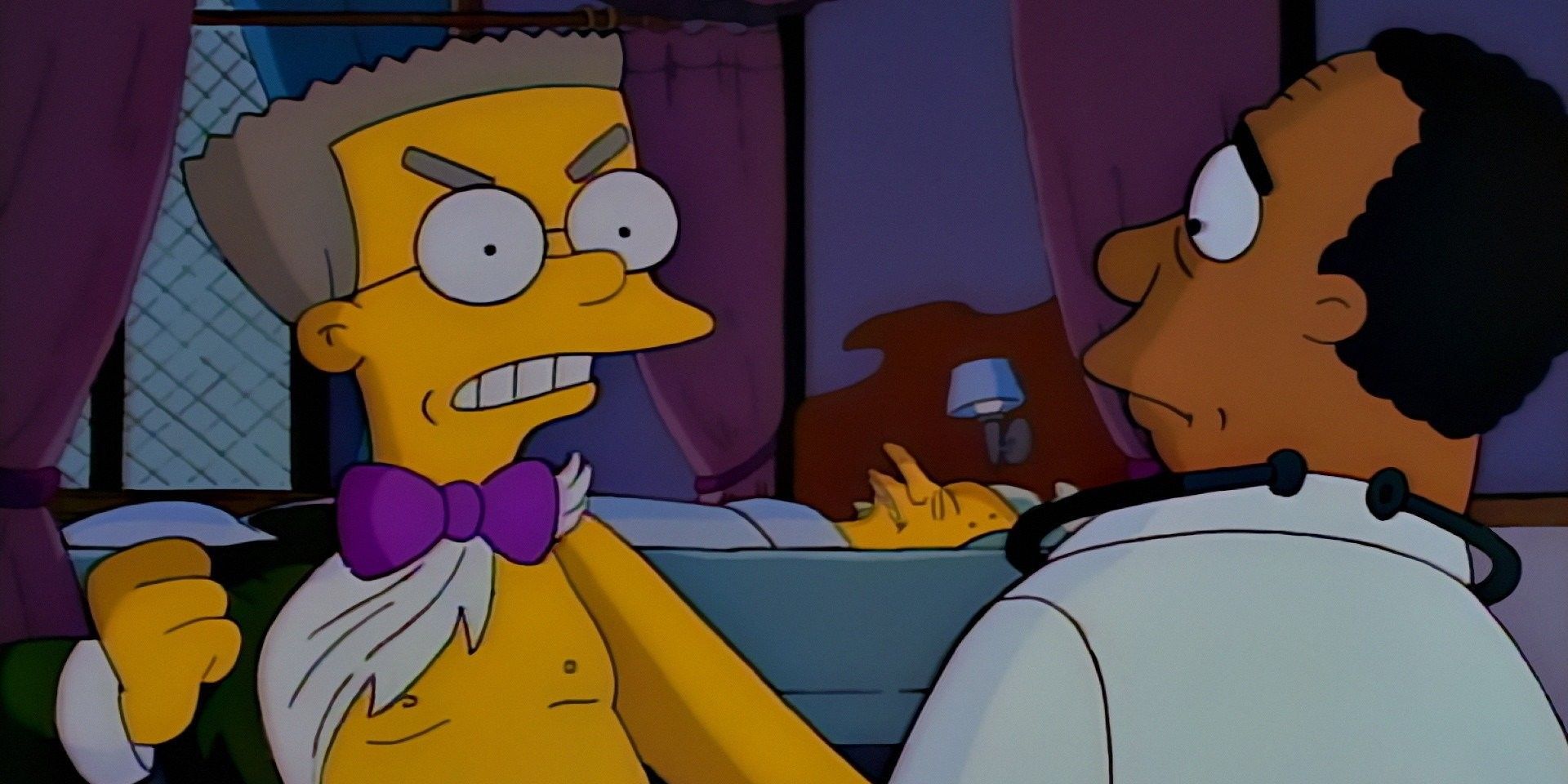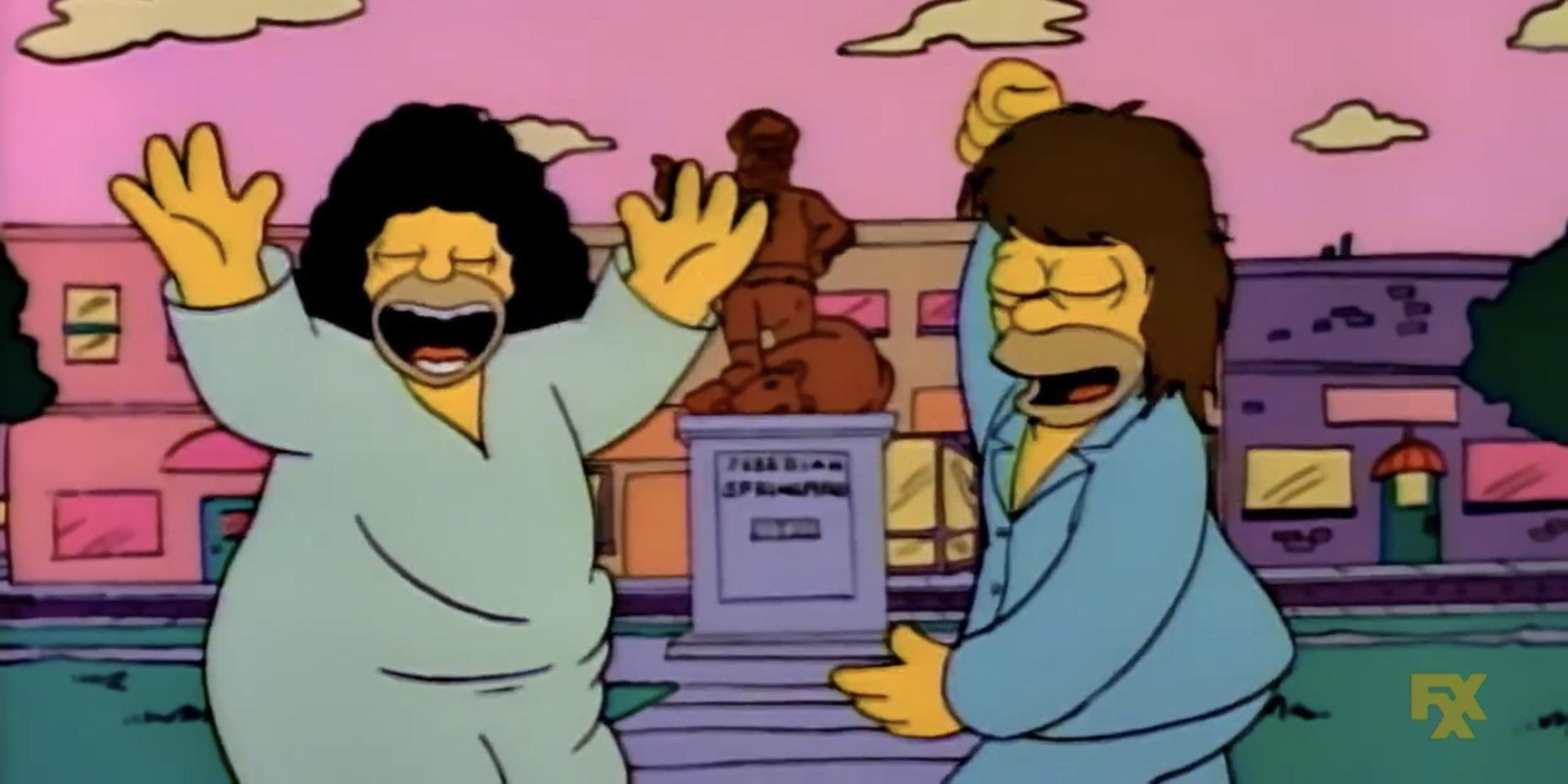The 10 Best Homer Episodes in ‘The Simpsons’, Ranked
Homer J. Simpson is one of the most iconic cartoon characters of all time. The patriarch of The Simpsons has been eating donuts at the nuclear power plant, drinking Duff beer at Moe’s tavern, and watching television on his couch for thirty-four years. Maybe the first word that comes to mind is his most famous catchphrase, “D’oh” (inspired by actor James Finlayson), or his other famous catchphrases most people have probably heard at some point. But it takes a lot more than a few repeated expressions to make a character memorable.
Voiced by the versatile Dan Castellenata, Homer can be funny in so many ways that his character is no less than brilliant. Later seasons often depict a more arrogant, selfish, and weirdly articulate version of the character. But Homer-classic is fundamentally self-conscious, moral (if short-tempered), and ignorant, which allows viewers to both laugh at and sympathize with him. He’s an Everyman, a satirical take on the American father figure, a relatable loafer with recognizable vices. So—love him or hate him—Homer is a significant exaggeration of what it means to live in the modern age, and his best episodes display both the humor and various nuances of his personality.
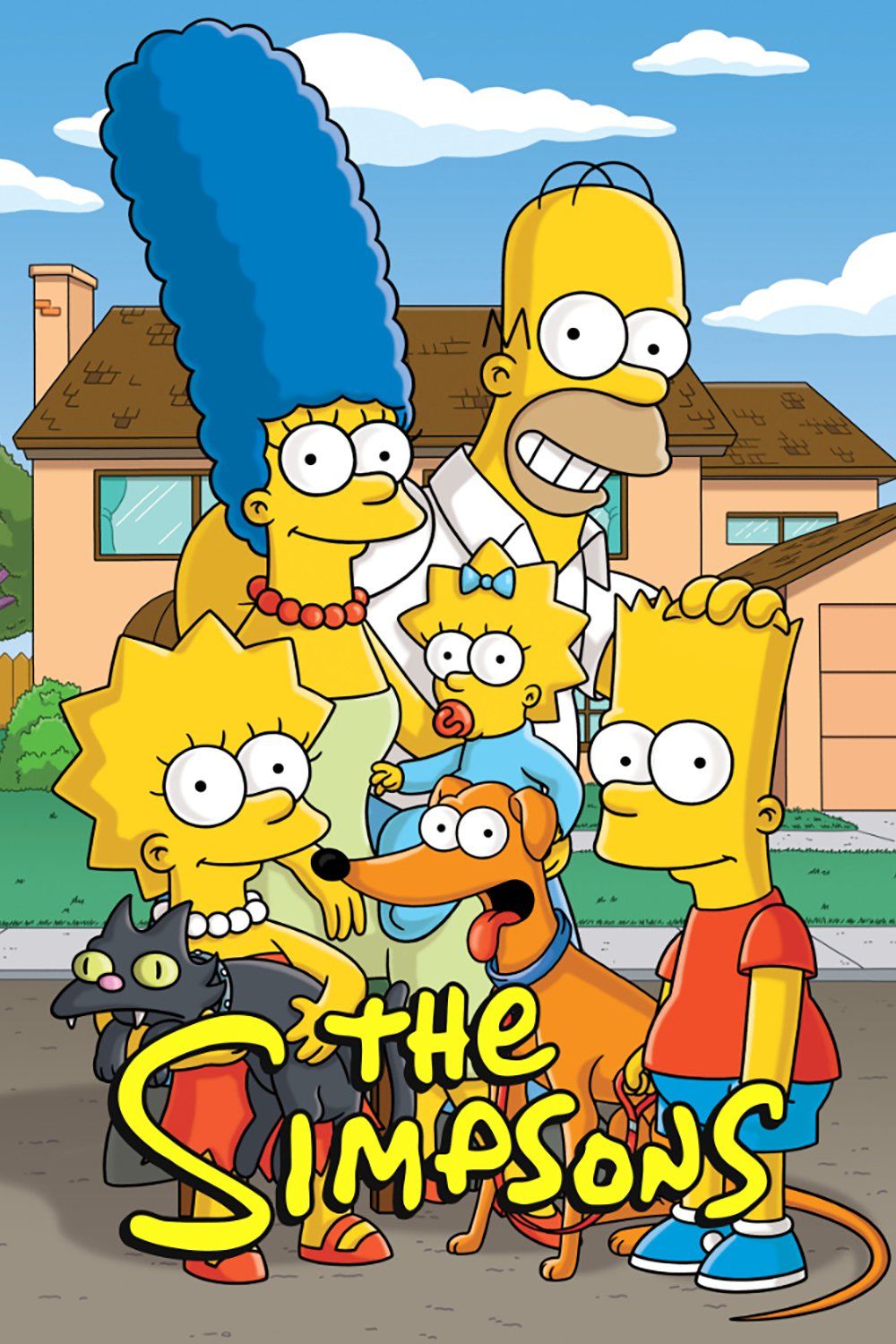
The Simpsons
The satiric adventures of a working-class family in the misfit city of Springfield.
10 ‘The Way We Was’
Season 2, Episode 12
The first flashback story in The Simpsons would go on to inspire later episodes, including “And Maggie Makes Three” and “Lisa’s First Word.” This one is about how Homer ended up with Marge in 1974, but there are also some amusing details that explain other things in the present-day. One example is when Marge preaches women’s liberation on school grounds and subsequently gets detention. Later she grumbles, “That’s the last time I take a stand.” Then there’s teenage Homer’s reply to the idea of himself at the power plant: “Kaboom!”
But what makes “The Way We Was” an essential episode of season two would be its ability to mix so much humor into a moving romance. This features the first appearance of “Close To You” by The Carpenters in the show, which would return in later episodes and even The Simpsons Movie. It first plays when Homer sees Marge, and his first attempt to talk to her is both hilarious and heart-warming. When these two wind up together on prom night, we can see what Marge sees in him all those years (and pounds) later.
9 ‘Homer’s Odyssey’
Season 1, Episode 3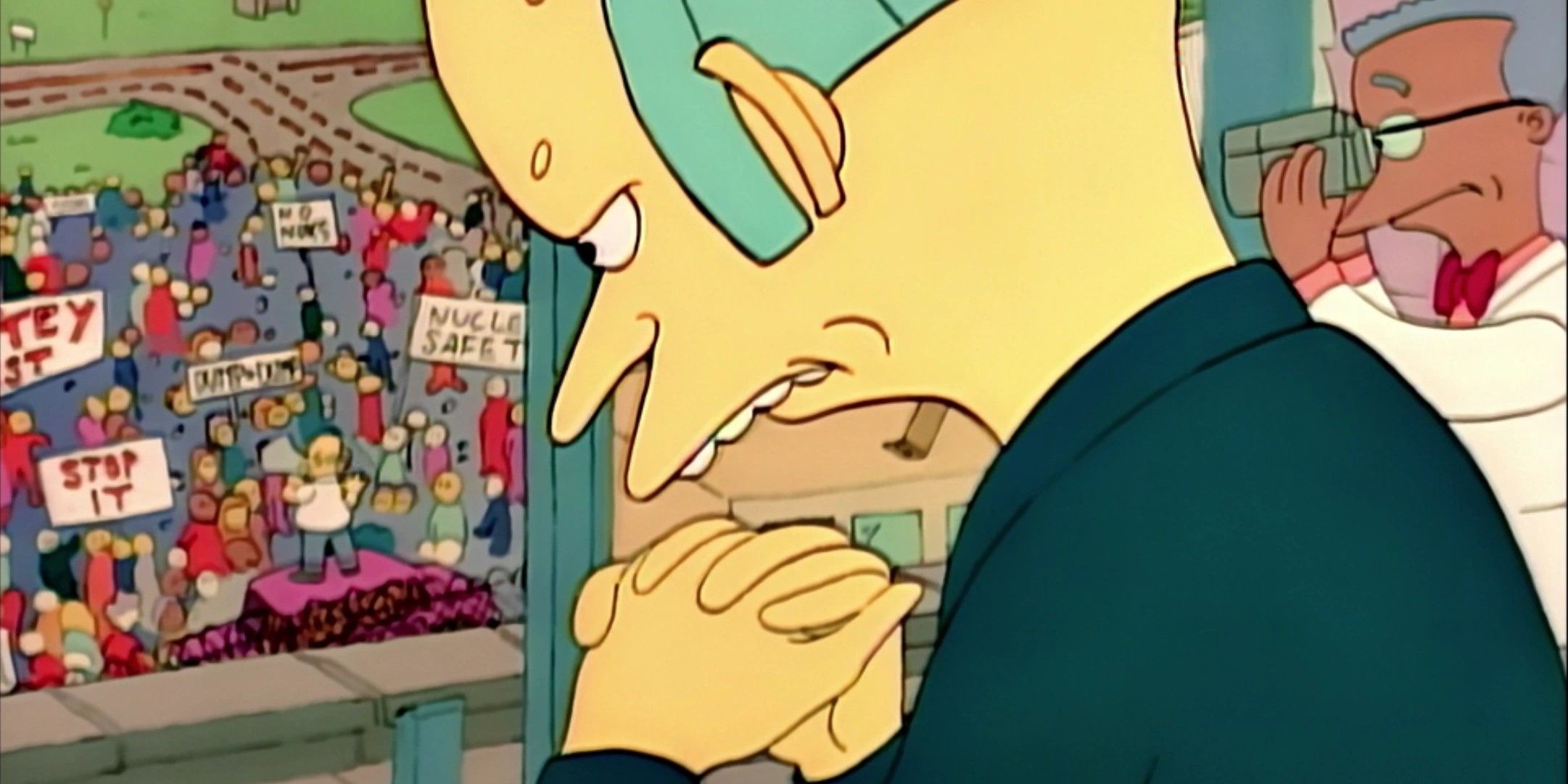
So many rare occurrences here. For one, Homer takes nearly seven minutes to appear: an unusually long time for an episode’s main character. Meanwhile, Springfield Elementary takes a tour of the nuclear power plant, a sequence that gives the audience its first look at Blinky, the three-eyed fish. When Bart and his class finally spot Homer, he gets distracted and crashes his cart. This is the first time he’s fired, which also doesn’t happen as often as one would think. Unable to find new work, Homer complains: “I’m no supervising technician; I’m a technical supervisor.”
After struggling with depression, he ironically finds purpose in making the city safe—prompting Bart to actually say out loud that Homer’s his hero. This episode also has one of the best titles: “Homer’s Odyssey” doesn’t force any puns, but it also points to the various challenges and inner conflicts that Homer faces. Overall, this early episode establishes him as someone who may not be the brightest and often takes the easy way out, but who ultimately means well and is driven by his family.
8 ‘Homer Defined’
Season 3, Episode 5
Homer has always been inept at his job, but it usually results in minor accidents that Springfield at large remains blissfully unaware of. Not this time. In season 3’s “Homer Defined,” the nuclear plant is about to become a death-zone in a way not unlike the Chernobyl disaster. Homer is reasonably panicked, and it actually feels like his incompetence matters. With his room in sector 7-G locked down and the entire community awaiting their demise, an unusual atmosphere of suspense materializes.
Desperate to press the correct button in time, Homer uses eeny-meeny-miney-mo to choose. Thus, he saves the day and becomes a town hero, even though deep down he knows he’s more like the opposite. The dictionary gag that recurs throughout not only makes us laugh but traces a character arc: Homer goes from being “stupid” to “lucky” to “a fraud”—to his own unique phrase. Let it be known that “to pull a Homer” means “to succeed despite idiocy.”
7 ‘Homer at the Bat’
Season 3, Episode 17
Turns out Homer is good at something: batting. In fact, he and Springfield’s power plant team are skilled enough to wind up in the town’s baseball league finals. With a million bucks on the line, Mr. Burns hires nine major league players for cheap just so they can ensure victory—much to everyone else’s chagrin. Now, even Homer can’t play, and there’s nothing he can do about it. As Mr. Burns says in one of the cartoon’s best displays of foreshadowing: the odds of all nine major-leaguers missing the game is absurd.
Right on cue, Ken Griffey Jr. develops gigantism, Ozzie Smith falls into a bottomless pit, Steve Sax gets arrested, Don Mattingly fails to shave his “sideburns” correctly—and soon enough it’s up to Homer to win the game. This is a surprising climax, as Homer doesn’t make a mistake in a way that nonetheless makes him look silly. The playful “Talkin’ Softball” is one of the show’s best songs, and wonderfully ends a home run of an episode.
6 ‘Colonel Homer’
Season 3, Episode 20
All the songs are catchy, the jokes are consistently great, and Homer overcomes the temptation to have an extra-marital affair in “Colonel Homer.” After an argument with Marge, he decides to take a long drive that quickly becomes a fantastic test of how long he can go without breathing. Eventually, he winds up in a bar where Fudd is somehow still on tap and live country music lightens the mood. This is where Homer meets Lurleen Lumpkin, an up-and-coming singer-songwriter voiced perfectly by Beverly D’Angelo.
After hearing her sing the words “your wife doesn’t understand you, but I do,” Homer is transfixed. Soon he becomes her manager, and she writes autobiographical love songs about him. When his feelings for Lurleen are impossible to ignore any longer, Homer nobly remains loyal to his presently-furious wife. The singer graciously accepts his rejection by performing a song about it on television, which proves a touching way to show Marge that Homer didn’t cheat. At last they reconcile in one of the show’s more tenderhearted endings.
5 ‘You Only Move Twice’
Season 8, Episode 2
Homer is never more comically oblivious than in season eight’s “You Only Move Twice.” Hired to work at a nuclear plant for Globex Corporation, Homer moves the family to a beautiful town called Cypress Creek. Maggie immediately has a bad time, but it takes a little longer for everyone else to realize they’d rather go back to Springfield. Homer’s the only one who loves it here, as his boss, Hank Scorpio (in one of Albert Brooks‘s best performances) has given him an easy job for higher pay. Of course, if Homer paid more attention, he would know his boss is a super villain.
Watching Hank Scorpio blow up a building and threaten world leaders as Homer blankly stares out a window in the background is absolutely priceless. Even when Homer is asked to tackle Mr. Bont and kill someone on his way out of the building, he doesn’t think twice about his boss’s ethics. But eventually he quits, which goes to show that Homer is willing to give up the (ostensibly) good life on account of his family’s happiness. Also, that James Bond parody during the credits is exceptional.
4 ‘Burns Verkaufen der Kraftwerk’
Season 3, Episode 11
Homer’s insecurity and pitiful attempts to look like a good worker are on full display in “Burns Verkaufen der Kraftwerk.” As the title’s English translation indicates, Mr. Burns sells the power plant to a German company for $100 million. At this point, Homer’s uselessness understandably makes him anxious. In fact, when his new boss asks to speak with him, Homer just says “No” (twice) and attempts to run away.
This episode features Homer’s ridiculous visit to The Land of Chocolate in the middle of a meeting that will determine whether he keeps his job. Naturally, he daydreams for about ten minutes too long. Meanwhile, Mr. Burns tries to enjoy his retirement, but ultimately discovers he needs the power plant back once he’s mocked by Homer at Moe’s tavern. This isn’t the first time Homer has told off Mr. Burns, nor is it the first time his rudeness paid off. In possibly the shortest final scene of the series, Homer gets his job back.
3 ‘One Fish, Two Fish, Blow Fish, Blue Fish’
Season 2, Episode 11
This episode has more weight than most, as the prospect of Homer’s untimely death hovers over. But first, the Simpsons go to a sushi restaurant and mostly have a blast. Lisa and Bart sing the theme from “Shaft” at the karaoke bar while Homer orders everything on the menu. Unfortunately, that includes the dangerous fugu. Because it wasn’t prepared by the head chef, Homer is told he’s been poisoned. Dr. Hibbert gives him 22 hours to live.
“One Fish, Two Fish, Blow Fish, Blue Fish” subsequently unfolds as one of the most dramatic episodes in The Simpsons‘ history without even sacrificing that many jokes. Homer comes up with a list of things to do on his final day—from listening to Lisa’s saxophone to telling off his boss to planting a tree. It’s both funny and sad to watch Homer struggle to check off all the boxes, and the scene in which he listens to an audiobook for the Bible (voiced by Larry King) is eloquently paced. Homer ultimately survives and vows to live life to the fullest, though the end credits amusingly suggest otherwise.
2 ‘Blood Feud’
Season 2, Episode 22
Every single joke lands in season two’s hilarious finale, “Blood Feud.” Mr. Burns badly needs a blood transfusion, specifically from someone with blood type double-O-negative. Homer greedily has Bart report to the blood mobile in anticipation of a great reward, but the only thing the Simpsons get in return is a thank-you card. Homer then transitions from his greediest point to his dumbest, dictating a scathing letter to send to his boss. Bart mails it, at which point Homer tries and hysterically fails to water the USPS box in broad daylight.
It’s also great to watch Mr. Burns go from unusually weak to extremely strong, totally furious, and disarmingly kind—no doubt completing a literal character arc with the publication of his book: Will There Ever Be a Rainbow? Eventually, he and Smithers present the Simpsons with Xtapolapocetl, a giant Olmec head statue they bought at the aptly-named Plunderer Pete’s.
1 ‘Simpson and Delilah’
Season 2, Episode 2
Homer is never more amusingly and sympathetically insecure than in “Simpson and Delilah.” Bald at 36, he tries to get the hair-growth product Dimoxinil, but it’s too expensive. So he makes a shady deal for it, grows a full head of hair overnight, and is quickly promoted to executive for his appearance. But he knows he doesn’t deserve his new position, as does his new assistant, Karl.
Played charismatically by Harvey Fierstein, Karl is among the best characters to only appear in one episode. Ironically, he doesn’t become Homer’s assistant so much as his personal coach and mentor. He takes Homer shopping, gets Marge an impressive anniversary present on her husband’s behalf, and even takes the blame for cheating the power plant’s insurance so that Homer can keep his job. The personification of grace, Karl curtly insists that Homer deserves to love himself: a lesson that everybody can use. The final scene between Homer and Marge is also one of the most touching in the show’s history.
Watch on Disney+
#Homer #Episodes #Simpsons #Ranked

